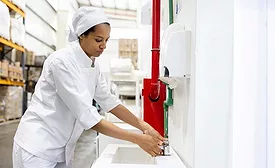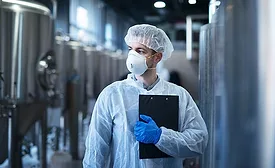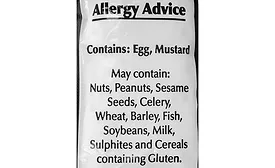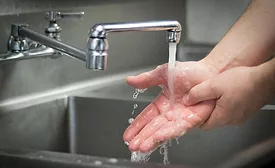Richard F. Stier, M.S.
Richard F. Stier, M.S. is a consulting food scientist who has helped food processors develop safety, quality and sanitation programs. He believes in emphasizing the importance of how these programs can help companies increase profits. Stier holds degrees in food science from Rutgers University and the University of California at Davis. He is also a member of the Editorial Advisory Board of Food Safety Magazine.
ARTICLES
Building a Culture of Hygiene in the Food Processing Plant
One of the crucial building blocks for a successful food safety or quality culture is basic food hygiene
February 13, 2024
Choosing the right cleaning tools
Identify needs to ensure right cleaning and sanitizing equipment, materials choice
December 22, 2020
Food Safety
How to avoid food safety and quality issues from employee error
Protect product integrity through training, security measures and prevention programs
October 27, 2020
Food Safety
Do third-party audits need a revision?
Food and beverage companies often view audits as something to pass instead of necessary improvement tools
September 29, 2020
Food Safety
How to manage food labels to ensure allergens are clearly noted on any product
Use of the wrong package or label is one of the most common causes of allergen recalls
August 4, 2020
Food Safety
How Processors Can Use Robots to Enhance Food Quality and Safety
June 23, 2020
Never miss the latest news and trends driving the food safety industry
eNewsletter | Website | eMagazine
JOIN TODAY!Copyright ©2025. All Rights Reserved BNP Media.
Design, CMS, Hosting & Web Development :: ePublishing










